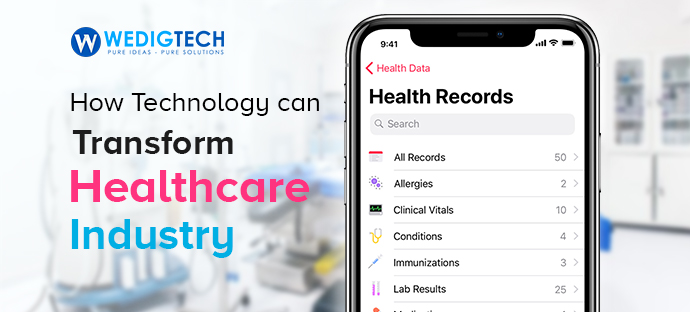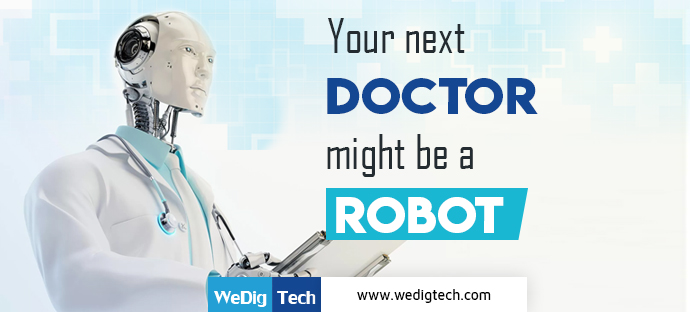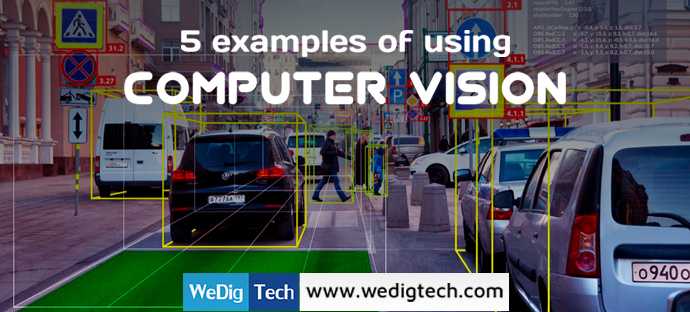Over the past decade, technology has transformed the way we live. The digital transformation and digitization are affecting each and every sector; from industrial to manufacturing, from finance to retail. Then how can Healthcare be out if its reach?
So far, software-based technology, data analytics and connected devices combined together have changed everything from the way we hail a taxi to the way we find apartments on rent. Now it’s time for the Healthcare industry to be part of this digital transformation and go through the evolution like never before.
Challenges to Healthcare Industry
Healthcare has always been the most crucial part of human lives. Not just for an individual, health care is also important for a country’s overall growth. So what are the factors that bring out the need for digital transformation in the healthcare sector?
- Life Expectancy Rate – The need for digitization in healthcare comes from the need of increased life expectancy rate, which is an indicator of any nation’s wholesome growth.
- Healthcare Expenditure – Also, another major challenge in the healthcare is the cost of services. This is a major challenge for all the countries across the globe to provide quality healthcare services to all the citizens at an affordable rate.
- Quality Healthcare – Even in the 21st Century, many countries still don’t have access to quality healthcare which is another major factor to bring improvisation in the healthcare services.
- New Diseases – Every year, we get to know about new virus or disease that is infecting people all around the world on a large scale. To fight such new diseases, technology can be of great help.
- Shortage of Staff – Healthcare is that one sector where there is a huge shortage of manpower. There are many factors that make people avoid making a career in healthcare, some of which include ever-going studies, expensive courses, and lack of educational resources.
These challenges to healthcare hugely impact the lives of people. People tend to lose their lives without the adequate research and resources. The lack of proper helping staff affects the quality of service provided to the patients. Some are even unable to afford the healthcare services.
All these challenges can be overcome with the proper introduction and implementation of the technology in the Healthcare Industry.
6 Ways Technology is Transforming Healthcare
Telemedicine
- Telemedicine is the most commonly found benefit of technology in the healthcare. All it takes is a smartphone and a smarter internet connection, and a patient can directly be connected to a doctor, resulting in the faster diagnosis and treatments.
- The traditional visits to the doctors are tiresome and demoralizing for many patients. Telemedicine let the doctors and patients be connected right on time that too at the lowest possible cost, especially in the remote communities where conducting face to face assessments of patients is both time and money consuming.
Virtual Assistants & Robots
- Using robotic surgical equipment let surgeons treat patients from miles away. The time is not far away when these surgical robots will be able to operate on their own.
- These robots will do automated tasks of delivering medications, food, and medical supplements.
Wearable
- Wearable technology is lightweight and easy to carry. They can collect personalized, real-time data, encouraging healthier lifestyles, and collecting data for medical research.
- They can even be used at a workplace to boost performance. Companies can recommend healthier habits to the employees by monitoring their health and stress levels.
Artificial Intelligence (AI) and Augmented Reality (AR)
- Augmented reality will change our understanding of the human body. AI will help us fight illnesses that have defeated even the best caregivers.
- By measuring the customer satisfaction in identifying risk factors for the patients, artificial intelligence is proving its worth everywhere.
- Even your Smartphone with healthcare mobile application can perform DIY blood tests, ECGs, record temperatures and heartbeats.
Internet of Things (IoT)
- There is a new concept being discussed globally, which is the Internet of (Medical) Thing (IoMT). Using this concept, mobile and wearable devices are connected to work as a cohesive self, to create medical health reports and data.
Big Data
- As more DNA gets analyzed, wearable gather more lifestyle data, and medical records are digitized, much more detailed comparative patient analysis becomes possible.
- Comparing the responses of patients with similar DNA, lifestyles and medical histories can allow us to truly understand health risks and the impact of different treatments.
Impact of Healthcare Technology on People’s Lives
The emergence of technologies like big data, cloud, smartphones, and data capturing, enable a huge pile of data to be linked together and processed for new insights.
Other technologies such as augmented reality and virtual reality are increasing affordability and are on the cusp of having a real impact on healthcare.
Even in the hospitals, everything from beds to scanners is now connected using technologies such as Bluetooth tags which help them track patients and treatments in ways that were impossible before.
Telemedicine
- “Virtual” visits from doctors, delivered via portable video devices, can save lives.
- For those older people who live alone, a doctor regularly checking in helps to avoid the tragic instances of people suffering strokes, heart attacks or falls and lying unnoticed at home.
Virtual Reality
- For Phobia Treatment – One of the most well-established uses of VR is the treatment of phobias. According to a study in the US, 83% of arachnophobias were more comfortable with spiders after being treated with VR.
- For Rehabilitations – Showing patients scenes of nature via a VR headset helps them sleep calmly.
- For Training – VR is already helping in training the medical staff by letting them empathize with patients in a virtual reality setting.
- For Physical Therapy – A research at the University of Birmingham taught patients to breathe in and out in time with a virtual game where they aim a trebuchet into the sea.
- For Pain Management – Several experiments all around the world have concluded that VR can help the human body resist pain.
Internet of Things (IoT)
- Implantable glucose-monitoring systems can allow patients to check their glucose readings via apps on their phones.
Augmented Reality
- AR glasses can allow surgeons to see inside the patient’s bodies using data from scans.
- 3D scans and CAT scans can be superimposed on the patient’s body to improve the surgeon’s awareness.
5G Connectivity
- 5G speed will facilitate remote surgeries, where surgeons can operate surgical robots from a distance.
Wearable
- Smart wearable can monitor the health of the patients, can check whether they have taken the medicine, and if not they can even remind the wearer to take the medicine.
Virtual Assistants
- AI assistants, similar to that of Google Assistant and Siri, will soon become an integral part of the doctors’ routine, letting them treat 5-10 times more patients.
AI and Machine Learning
- AI captures data patterns and uses them to predict, prevent or treat diseases.
- For example, a software that collects information about patients in recovery, monitors their blood pressure (BP) and heart rate (HR), and from observing the same scenario thousands of times can learn that when BP and HR fluctuate in a certain pattern, it increases the chances of patient going into shock, and in that case an intervention like intravenous fluids becomes necessary. All this is machine learning.
Big Data
- Till now, it has been the approach for doctor-patient confidentiality to keep healthcare records under lock and key. But with the advancements in technology, it is better to unlock the data and cross-reference a patient’s file with others to gain better insights.
- For example, imagine the number of x-rays a radiologist sees in their lifetime. Let a machine record all the data and notes of every radiologist on the planet, compile them together, and it will accelerate the pace at which the healthcare industry operates.
Conclusion
The healthcare industry is the latest to go through the digital transformation. It may be late, but it surely is embracing the technology to elevate to the next level.
The implementation of advanced technologies in the healthcare is beneficial for both the doctors and the patients. The doctors will be able to provide better healthcare facilities to the patients in lesser response time. On the other hand, patients will get the access to quality doctors and healthcare services at affordable costs.
WeDigTech is an organization working towards developing high-end healthcare solutions for the medical companies. We are bringing the best in class healthcare solutions to the patients and doctors, doing our part in improving the health of the people around the globe.
We have a team of experienced professionals in technologies like AI, IoT, Blockchain, Big Data, VR and AR that guarantee the delivery of the best products as per your expectations.
Looking for a technologically advanced healthcare solution?
Fill out the form below, and let us take care of your needs!











